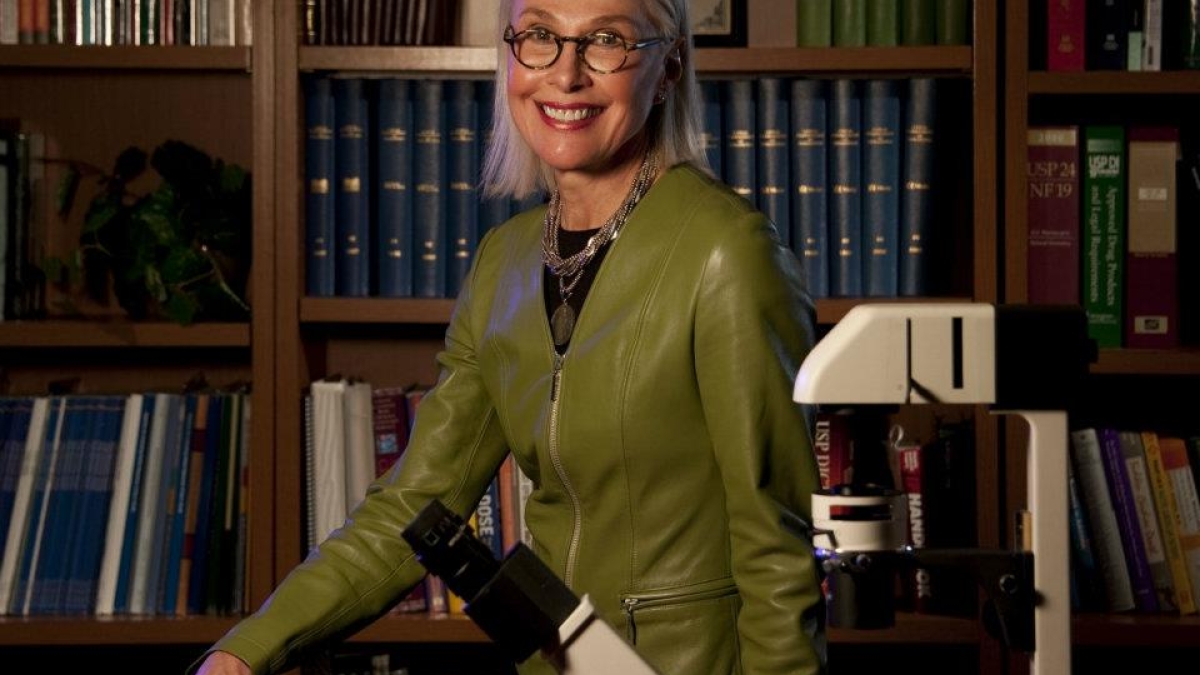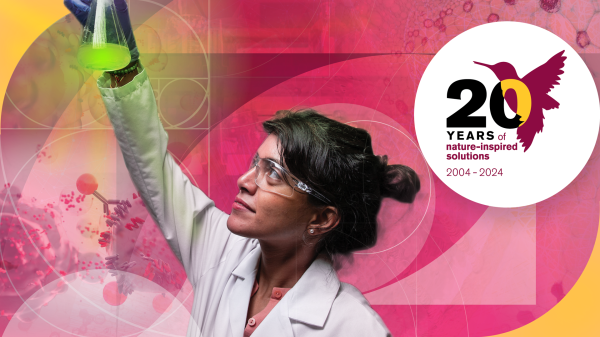Life sciences professor named one of world’s top 100 pathologists

Professor Carolyn Compton was named one of the top 100 most influential pathologists in the world for her leadership roles in the field of pathology and pioneering biospecimen science. Photo by Balfour Walker
The Pathologist, a magazine that covers stories on the forefront of health care, has named Arizona State University’s Carolyn Compton to its 2015 Pathology Power List of the 100 most influential pathologists. An independent panel of experts chose Compton for this honor from a list of 30,000 pathologists around the world.
Compton, a professor with ASU's School of Life Sciences, earned the distinction for her hundreds of publications, the many leadership roles she holds and pioneering the field of biospecimen science.
“It’s always gratifying to be recognized as a leader by one’s peers, but I am especially gratified that I have been able to put the science of biobanking on the map,” Compton said. “Without attention to biospecimen science, there will be no precision medicine in the future.”
As a pathologist, Compton focuses on improving the diagnostic process of medicine. Though patients rarely see them at work, Compton said about 70 percent of all patient treatments are based on testing performed by pathologists. This involves analyzing biological samples taken from a patient and interpreting the results within the context of symptoms.
Biological samples are called biospecimens. Studying these samples is crucial in creating “precision medicine” — disease treatments that take into account the individual molecular variation in a patient’s biology.
After being removed from the body, biospecimens may lose their analytic value due to continued biological activity within the sample.
So, to preserve their molecular integrity, pathologists employ a series of “biobanking” procedures to safely acquire, transport, stabilize, process and store biospecimens for patient care and further research.
Compton is the chief medical officer of ASU’s National Biomarker Development Alliance and of its Complex Adaptive Systems Initiative. She is responsible for making sure the procedures for developing biomarkers meet the highest scientific standards. Biomarkers are substances ranging from molecules to genes that can be used to measure a person’s health, disease prognosis, response to treatment, or disease progression, among other things.
In addition to her responsibilities at ASU, Compton is leading an initiative with the College of American Pathologists to develop and implement the first national standards for biobanking in patient care.
More Science and technology

Celebrating '20 Years of Discovery' at ASU’s Biodesign Institute
Editor’s note:The Biodesign Institute at Arizona State University continues to celebrate its landmark 20th anniversary with this…

Rocket science: Students land opportunity to create inflatable lunar pad for NASA
Sixteen Arizona State University students have landed an opportunity to participate in the 2024 Breakthrough, Innovative and Game…

ASU startup pioneers breakthroughs in cell therapy
Regenerative medicine harnesses the body’s inherent ability to heal itself by using cells to repair or replace damaged tissues…